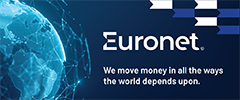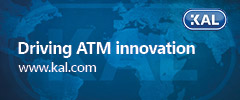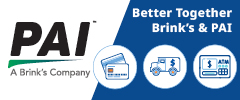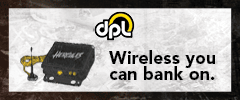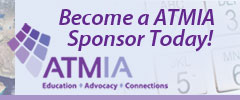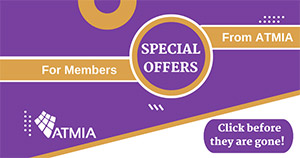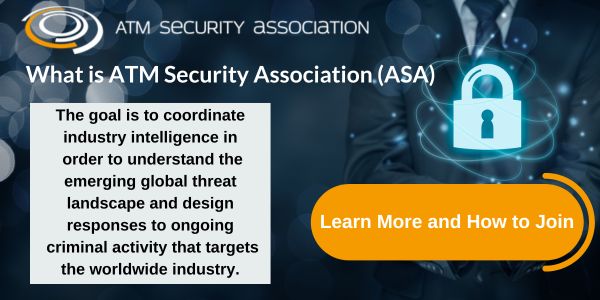
ATMIA members testify at ATM tariff hearings in Washington, DC
Wednesday, August 22, 2018
View ShowroomATMIA members were in Washington, DC today to testify in public hearings for proposed new tariffs on ATMs. The proposed tariff (USTR-2018-0026, which includes HTSUS Code 8472.90.1000, defined as ATM units) would tighten margins for ATM deployers and could result in the removal of ATMs from many retail locations, negatively impacting consumer access to cash and small businesses dependent on having ATMs nearby.
ATMIA submitted written comment on August 13 encouraging the Administration of President Trump to delay the implementation of these tariffs for the foreseeable future, while negotiations continue for a more equitable trading framework between the U.S. and China.
John Leehy testified as follows:
Good afternoon. My name is John Leehy, I’m President of ATMIA, the Automated Teller Machine Industry Association, which is the largest ATM trade association in the world, having more than 10,000 members in 65 countries, and representing more than 1,000 members and over 350 ATM businesses here in the United States. I am also the former Chairman and CEO of Payment Alliance International, the nation’s largest privately held ATM deployer.
I have been in the payments industry for over three and a half decades….and have served for more than a quarter of century in the role of CEO. Over that time I have developed an appreciation for the impact that public policy can have on the payments industry, and how those policies can strengthen our ability to serve our markets….or create new, unintended barriers to delivering the convenient cash access that Americans have come to depend on.
I’m here before you today, on behalf of a strongly united U.S. ATM industry, to request that you please remove “ATMs” from list 3. Equally troubling are the new tariffs already in force on ATM parts and components. At this point, we hope you will choose to handle that critical issue through the exclusion process. Punitive tariffs on ATMs themselves would bring meaningful harm to an important U.S. industry and would produce negative consequences for retail commerce more generally.
It might be helpful to bring further clarity to the machines that list 3 would propose to tax. These are predominantly machines that we refer to as “retail” or “off-site” ATMs. They are designed to be smaller, more affordable machines, thereby enabling placement in locations that have substantially less traffic and are frequently found in places where access to banks and credit unions is limited. Their price points have been aggressively pushed downward as compared with the larger machines found in the lobbies of commercial bank branch locations, making the economics work for placing them in these lower volume locations.
The hundreds of independent businesses who compete to serve this market are truly great examples of “Free Market Warriors” and the picture of “American Capitalism” at its very best. They wake up every day and fight to build their businesses by bringing value to those they serve. There are few, if any, more competitive businesses than today’s retail ATM business in America, which should make the message of this unified industry response all the more compelling.
The consumers they serve, often find themselves excluded from financial products and services that many of us take for granted, and mistakenly assume are ubiquitously available to everyone. In fact, these machines are critical to the distribution of local, state, and federal EBT and assistance programs, tax refunds, veteran’s benefits, and FEMA recovery efforts. Our businesses, and the communities and populations they serve, will be harmed by diminished access to funds if the economic balance is altered by debilitating increases in the costs to serve these markets. I struggle to imagine our government taking steps to make it harder to administer government programs for no conceivable benefit, and contributing to the creation of underserved pockets, even “cash deserts” within our communities.
Two final observations I would like to leave you with. The first pertains specifically to jobs. Unlike some other types of traded products which may come before this committee, ATMs have an unusual post-deployment multiplier effect on jobs. More plainly stated, once placed into service, ATMs generate many more jobs than were required in the original production of the equipment. They must be regularly loaded, maintained for service, and frequently upgraded.
The second is that no one else appearing before you in these hearings has cash as its core product. We believe that an exclusion here would be very narrow in scope, yet have an extremely positively impact on the entire economy.
A tax on ATMs is, in fact, a tax on retail commerce. It is hard to imagine that the imperatives of US. trade diplomacy, which of course we and the other witnesses appearing here do recognize, require you to take such an intrusive and potentially damaging step.
Thank you for your time, and I look forward to your questions.
Additional Resources from ATM Industry Association
- 4/23/2024 - ATMIA Unveils Strategic Collaboration with Reconnaissance International to Elevate Intelligence & Networking Services to the ATM & Currency Industries
- 4/21/2024 - Fight Against Cashless Economy:
- 4/18/2024 - 3 myths about accepting cash at self service
- 4/18/2024 - Upcoming ATMIA/ASA Committee Meetings: April and May 2024
- 4/18/2024 - ATMIA Joins Atlanta Fed Meeting on Best Practices for ATM Cash Replenishment
- Show All ATM Industry Association Press Releases / Blog Posts
